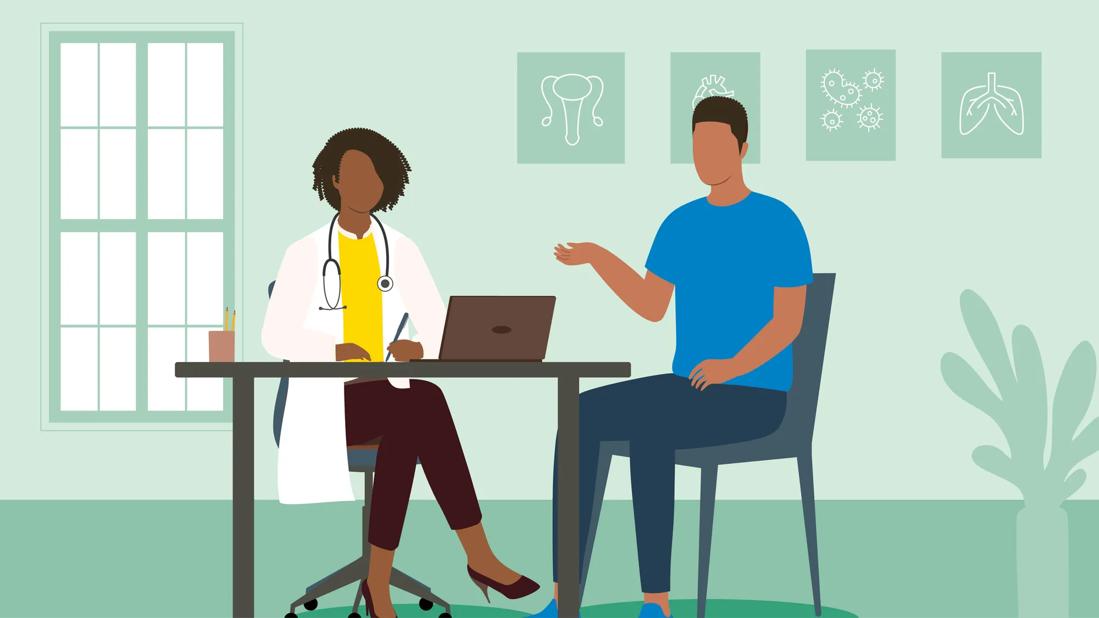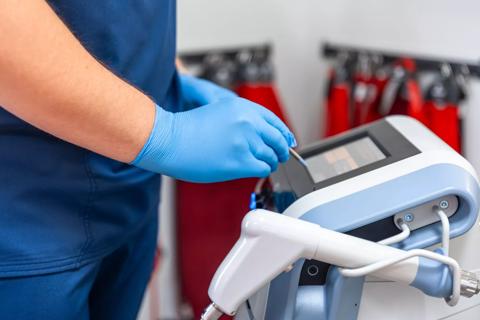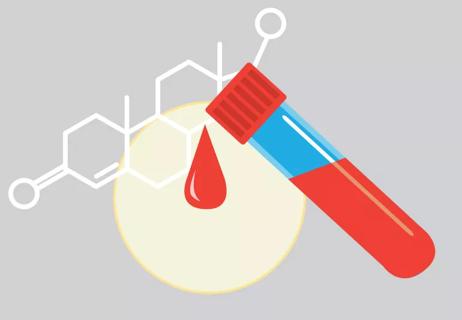Here’s what you need to know about ED, which most men experience to some degree during their lives

When it comes to erectile dysfunction, or ED, guys have questions. They may not always be willing to ask them when things aren’t working as they want downstairs, but it’s safe to say they’re looking for answers.
Advertisement
Cleveland Clinic is a non-profit academic medical center. Advertising on our site helps support our mission. We do not endorse non-Cleveland Clinic products or services. Policy
So, let’s tackle 15 frequent questions about ED with urologists Petar Bajic, MD, and Raevti Bole, MD.
Video content: This video is available to watch online.
View video online (https://cdnapisec.kaltura.com/p/2207941/sp/220794100/playManifest/entryId/1_xwvoe8qm/flavorId/1_5f3sgelj/format/url/protocol/https/a.mp4)
Learn more about the causes of erectile dysfunction from urologist Raevti Bole, MD.
It’s VERY common, as most men experience ED at one time or another during their lives. “This is a condition that affects a lot of men, and it can happen at any age for a variety of reasons,” Dr. Bajic says.
Keep in mind, too, that erectile dysfunction isn’t an all-or-nothing situation. It’s a condition that exists on a spectrum. For example, getting erections that are weak or short-lived qualifies as ED.
“Basically, if you’re bothered by a lack of sufficient rigidity, you have erectile dysfunction,” he adds.
The older you get, the more likely you are to experience some form of erectile dysfunction. It’s estimated that about 40% of men at age 40 deal with ED. The number increases to 70% by age 70.
But any issues with penis rigidity are often due to other health issues that can affect erections. (More on that in a moment.)
“It’s more a factor of other conditions causing ED than just pure age alone,” clarifies Dr. Bole. “There are plenty of guys in their 70s and 80s who are fit and healthy and their erections are very satisfactory to them.”
In the vast majority of cases, erectile dysfunction can be linked to blood flow issues related to cardiovascular disease. ED may even be a predictor of a future heart attack.
Advertisement
The reason? It all comes down to the size of the arteries throughout your body.
Blood flow to your penis relies on two arteries that are less than 1 millimeter in diameter. For comparison, your coronary arteries — which carry blood to your heart — are about 10 times larger.
“Things like high blood pressure, high cholesterol, diabetes and tobacco use can all cause your arteries to harden and narrow,” Dr. Bajic explains. “This can reduce blood flow to the penis, which makes it more difficult to fill with blood and get erect.”
Because cardiovascular disease affects your smallest arteries first, ED often serves as a warning sign that trouble is brewing in your ticker.
“ED usually happens a few years before the coronary arteries are affected,” he continues. “So, when someone comes to see me with new onset ED, we always have that discussion and focus on optimizing their overall health.”
Ever heard of performance anxiety? Well, it can happen to a certain body part during an intimate encounter — and it can get worse if you fixate on what’s happening (or not happening) down there.
“Sometimes, people will tell me, ‘I’m getting excellent morning erections, but things just don’t seem to function properly when I’m with a partner,’” shares Dr. Bajic. “In those cases, ED is often situational and anxiety-based rather than related to a blood flow issue.”
Stress can also affect erectile function, particularly if it prevents you from getting in the mood. Ditto for depression, especially in younger men.
“What you’re feeling can play a role in your ability to get a strong erection and maintain it,” explains Dr. Bole. “I’m a big advocate of sex therapy as a component of ED treatment because it’s important to talk about how your brain can affect your erections.”
Testosterone levels could play a role in ED, but it’s not a simple cause-and-effect.
Low testosterone, or low T, is a condition in which your testicles don’t produce enough of the hormone testosterone. As you age, your testosterone levels may start to decline, which can contribute to erectile dysfunction.
But low T isn’t a common cause of ED. In fact, they’re very separate issues.
“One of the common misconceptions is that low testosterone is the most common cause of ED, but it really is not,” clarifies Dr. Bajic.
Having erectile dysfunction doesn’t necessarily mean you have a low sperm count. But if you struggle to get or keep an erection during sex, you and your partner could have trouble conceiving.
That being said, ED and infertility do share some risk factors, including:
Advertisement
“Some of the same things that lead to fertility problems can affect erection health,” says Dr. Bole.
Despite what you may read online, there’s no magic food or drink that stiffens erections. “Like many things relating to men’s health, and specifically to male sexuality, there’s no robust evidence to support any individual theory,” cautions Dr. Bajic.
But your overall diet can play a role in erectile function.
Regularly filling your plate with heart-healthy foods that boost blood flow can help keep your sexual health at peak functionality. Eating plans like the Mediterranean diet or DASH diet work to address cardiovascular issues that could be behind ED.
Be wary of any supplement boasting that its “special proprietary formula” can take care of your ED. “I know they’re super popular to talk about,” says Dr. Bole, “but there’s no real evidence that they work.”
Supplements are also largely unregulated by the U.S. Food and Drug Administration (FDA), meaning you can’t be quite sure what’s in that pill you’re taking.
They absolutely can play a role. “More than 200 prescription drugs are thought to be associated with difficulty achieving erection,” states Dr. Bajic.
This includes common medications like:
Advertisement
If you’re taking one of these medications and suddenly experience ED, don’t abruptly stop taking your medication. Instead, make an appointment with your primary care provider or a urologist for guidance.
Ingesting toxins isn’t great for any part of your body — and that includes your penis, warns Dr. Bajic.
Drinking alcohol, smoking cigarettes and marijuana and using drugs like amphetamines and opiates can damage blood vessels and restrict blood flow to your penis. All of this can contribute to ED.
Over time, poor blood flow can even cause penile tissue to scar, which can ultimately reduce penis length.
Can coffee or energy drinks give you a lift in a different way? It’s doubtful, says Dr. Bajic.
Although consuming caffeine can have all kinds of powerful effects on your body, the widely used stimulant is probably not related — good or bad — to your ability to get and maintain an erection.
A large-scale study a few years back found no link between coffee and erectile function.
Odds are that whatever you pull out of your underwear drawer will not affect your ability to get an erection. “Standard underwear, like your various forms of boxers and briefs, is not going to cause ED,” says Dr. Bole.
Advertisement
So, wear what you want with confidence.
This isn’t anyone’s favorite answer, but … well, it’s not totally clear.
Some studies suggest that frequent riding compresses the pudendal nerve (which sends sensations from your genitals to your brain) and could lead to erection issues. Bike seats are also related to testicular pain and pelvic floor dysfunction, which could contribute to ED.
“There may be some mechanisms that we don’t yet fully understand, where prolonged biking and bike seats can negatively impact erections,” says Dr. Bajic. “In general, though, the vast majority of ED stems from a blood flow issue, which isn’t related to what you’re sitting on.”
In moderation, bicycle riding isn’t thought to affect erectile function. But if you’re riding long distances, it’s best to work in the occasional stop to give your lower region a bit of a break.
Finding a bike and seat that fit your body well may help relieve discomfort and pain. A padded seat or riding shorts can help, too.
Given that erectile dysfunction is often a sign of an underlying health concern, treating that issue can typically restore most, if not all, of your sexual function.
Even adjusting your diet, exercising more and reducing stress may help.
“Some men find that simple changes reverse the issue,” says Dr. Bole.
But sometimes, it’s not that simple, particularly if the ED is linked to some sort of physical damage to nerves or arteries, she notes. Talk with your healthcare provider about treatment options like:
Definitely. Dr. Bajic recommends seeking medical guidance if ED occurs more than half the time you’re trying to get an erection.
Start by talking to your primary care provider or make an appointment with a urologist to discuss the issue. They’ll be able to help determine the cause of your ED, which will dictate how it should be treated.
Because ED can have so many underlying causes — including cardiovascular disease — it’s important to see a medical provider in person.
“These are topics that primary care physicians and urologists deal with daily,” reassures Dr. Bajic. “So, if you’re having an issue or notice something new, bring it to their attention and let them help you figure it out.”
Learn more about our editorial process.
Advertisement

Adjusting your diet to focus on plant-based, whole foods may improve erectile function

Research shows the virus can affect your ability to get or maintain an erection

Psychological factors are the main cause of ED in younger men, followed by medications and a range of health conditions

Early results show the procedure may help resolve mild to moderate ED

Despite assumptions, there really isn’t a one-to-one connection between the conditions

Learn the many causes of erectile dysfunction

A variety of factors can cause temporary or more lasting changes in penis length

An unexplained lump, swelling, discomfort or changes to your testicles shouldn’t be ignored

Wearing a scarf, adjusting your outdoor activities and following your asthma treatment plan can help limit breathing problems

Your diet in the weeks, days and hours ahead of your race can power you to the finish line

When someone guilt trips you, they’re using emotionally manipulative behavior to try to get you to act a certain way